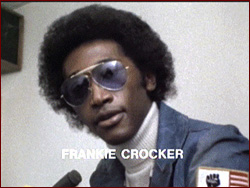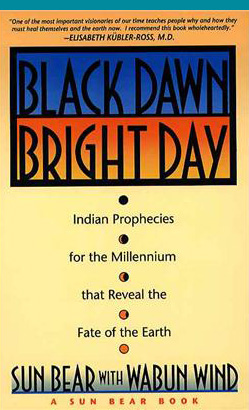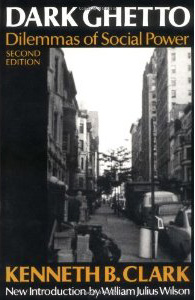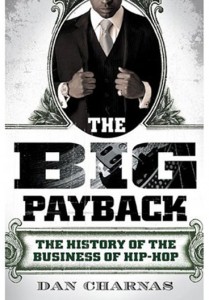Curently Reading…
The Creation Of Black Radio in NY and What WBLS Really Stands For
 “In 1971, a Harlem lawyer and politician named Percy Sutton led a group of Black investors, including David Dinkins, to buy two New York stations, WLIB-AM and FM. Sutton Changed the FM station’s call letters to WBLS, and hired Frankie Crocker as his star air personality and first program director.
“In 1971, a Harlem lawyer and politician named Percy Sutton led a group of Black investors, including David Dinkins, to buy two New York stations, WLIB-AM and FM. Sutton Changed the FM station’s call letters to WBLS, and hired Frankie Crocker as his star air personality and first program director.
The call letters ‘BLS’ were said to stand for ‘Black Liberation Station.’ Indeed, WBLS gave Frankie Crocker freedom during a time of corporate captivity for Black music and Black artists. In turn, Crocker’s WBLS freed the minds of a generation of New Yorkers. Under Crocker, WBLS redefined and expanded the concept of the ‘Black’ radio station. To the traditional soul and R & B fare of James Brown, Aretha Franklin, and Stevie Wonder, Crocker added an eclectic mix of rock, jazz, and pop standards- everything from Rolling Stones to Frank Sinatra. Crocker’s tastes were broad and cosmopolitan, and he expected no less from his listeners. He gave New Yorkers their first taste of a Jamaican rock-and-roller named Bob Marley. Crocker was among the first on the radio to play the beat-heavy, dance-oriented, soul that was becoming so popular in the new DJ-driven nightclubs called ‘discotheques,’ records like Manu Dibango’s ‘Soul Makossa’ and MFSB’s ‘Love Is The Message.’ Crocker presented a show that was sophisticated and grown-up. If WWRL was Harlem, WBLS was Sugar Hill- a cut above, a station that gave its listeners a taste of upward mobility…
In a time when Black music was being pushed from the airwaves across the country, and record and radio executives subscribed increasingly to the notion that there were records that were simply ‘too Black’ for White listeners, Frankie Crocker turned WBLS into the number one-rated music station among all listeners in the largest city in the country.
More profoundly, Crocker created a generation of young music aficionados in New York, kids from the inner city and from the suburbs, to whom he gave the gift of an open mind and the notion that a DJ could change the world.” -From, “The Big Payback: The History of the Business of Hip-Hop” By: Dan Charnas
Book Excerpt: The Treachery Of The Music Business Edition
 “Let’s not beat around the bush: The music industry as commonly known is, from the innermost innards to the outermost exteriors, a murderous international crime syndicate. There’s no other way to describe it as accurately. An outgrowth of the chattel slavery system, the music business is just one tentacle of capitalism, a monster that’s sole objective is the continuous accumulation of wealth by all evil means im/possible at anyone’s/anything’s expense. Its very nature is ill-will towards wo/men, dog-eat-dog, the cavewo/man’s basic instinct in full-effect for ‘modern’ times…
“Let’s not beat around the bush: The music industry as commonly known is, from the innermost innards to the outermost exteriors, a murderous international crime syndicate. There’s no other way to describe it as accurately. An outgrowth of the chattel slavery system, the music business is just one tentacle of capitalism, a monster that’s sole objective is the continuous accumulation of wealth by all evil means im/possible at anyone’s/anything’s expense. Its very nature is ill-will towards wo/men, dog-eat-dog, the cavewo/man’s basic instinct in full-effect for ‘modern’ times…
Though the music business- which insiders always insist is a business first and foremost- has money as the ends to the means, it is the will of white supremacy, the progenitor of capitalism, which has shaped the structure of music in European domains. This volition redefined the meaning, the purpose, the very qualities of music so much so that it became unrecognizable to the cultures of color subjected to colonization. And the ways we conceive of, perform, listen to and hand down music to generations are warped out of shape and sense. It’s more than money, even power. It’s the drive to destroy a people’s inner/outer worldview. It’s the battle of the minds- rather, those with instigated by those without.” -From, “Warrior Song” By: Djehuti Wa Kamau
Grandmaster Flash Speaks On The Impact Of Eric B & Rakim
 “I’d heard there was another group from Long Island- this one DJ and this one rapper- and they were supposed to be good…really good. ‘Eric B and Rakim’s the best I ever heard,’ said my nephew, Ramel, after hearing their song at a party, but I didn’t believe him until I heard them for myself.
“I’d heard there was another group from Long Island- this one DJ and this one rapper- and they were supposed to be good…really good. ‘Eric B and Rakim’s the best I ever heard,’ said my nephew, Ramel, after hearing their song at a party, but I didn’t believe him until I heard them for myself.
Ramel wasn’t exaggerating.
I would listen to ‘Eric B Is President’ a thousand times before I fully absorbed it, but it only took one play and I was sold.
First off, Eric B was a powerhouse DJ. He could scratch, his production value and bag of DJ tricks were off the hook, and his music selections were as good as if I’d made them myself; Eric B loved James Brown. Most important, he set up a rock solid beat foundation for his rapper.
His rapper was Rakim. And Rakim was the best I ever heard.
Rakim brought so much new thought and technique to the game when he rhymed, it was like he singlehandedly reinvented the art form of being an MC. When it came to verbal acrobatics, no other MC came close. If everybody else’s raps were like nursery rhymes, Rakim’s were like Shakespeare.
Before Rakim, Mcs would rhyme ‘cat’ with ‘bat,’ or maybe ‘pretty’ and ‘witty’ if they wanted to get cute. Rakim rhymed polysyllabic words like ‘residence’ and ‘presidents.’ Before Rakim, people started and ended verses in complete thoughts. Rakim would leave you hanging with an idea, just to make it rhyme, but finish the thought in the next sentence. Before Rakim, most rappers would set up one rhyme per line. Rakim would load up entire verses with so many continuous rhymes, I’d have to listen to them three to four times just to catch everything, marveling at how every phrase was a hook, every verse a complicated play on words.
Rakim was doing for rapping what I had done for DJing; he saw the limits of what was out there and figured he could do more. I could see him down in his own basement with a pen and a pad and a head so full of ideas, he couldn’t write them all down fast enough.” -From, “The Adventures of Grandmaster Flash” By: Grandmaster Flash
Michael Jackson and His Publishing
 “Finally in 1995, at Sony and John Branca’s urging, Michael merged ATV publishing with Sony’s music publishing division. Sony became half owners of Michael’s valuable catalog, and in exchange Michael was paid $95 million and retained half ownership. This not only meant that Michael would share in the label’s profits, but that he also had to approve any moves the label wanted to make regarding the catalog. This power division soon became problematic because Michael was an artist first, and a businessman second. So, unlike his new partners, he was not motivated by an insatiable quest for profits. Often the decision that would have brought in the most money was not the one that Michael agreed with personally, so he didn’t allow it. For example, when Sony wanted to license Beatles songs for use in iTunes and other commercial ventures, Michael declined because he didn’t think John Lennon would have approved, after he spoke to Yoko Ono about it.
“Finally in 1995, at Sony and John Branca’s urging, Michael merged ATV publishing with Sony’s music publishing division. Sony became half owners of Michael’s valuable catalog, and in exchange Michael was paid $95 million and retained half ownership. This not only meant that Michael would share in the label’s profits, but that he also had to approve any moves the label wanted to make regarding the catalog. This power division soon became problematic because Michael was an artist first, and a businessman second. So, unlike his new partners, he was not motivated by an insatiable quest for profits. Often the decision that would have brought in the most money was not the one that Michael agreed with personally, so he didn’t allow it. For example, when Sony wanted to license Beatles songs for use in iTunes and other commercial ventures, Michael declined because he didn’t think John Lennon would have approved, after he spoke to Yoko Ono about it.
All of these deals should have put Michael in an exceptionally strong position, professionally and financially. But Sony had played Micheal. Branca, who by this point had been brought back in by Bert Fields, had not been clear with Michael about several alarming details of the contract. Only after he signed did Michael learn that the contract granted Sony the rights to his masters for much longer than he had thought. These masters would not revert to him until 2009. Did he get them back, or did Sony keep them? Who knows?…
Being an international pop star with a recording contract with one of the world’s biggest labels, Michael decided to turn his fortunes around by releasing a new album, Invincible, in October 2001. Only, just before the album dropped, Michael became suspicious of Sony. He began to fear that Sony purposely didn’t promote his album because they wanted him to be so in debt to them that he would have to sell them his share of their collective publishing venture. He became so angry that he told Sony head Tommy Mottola that he wanted an early exit from his record deal with Sony.
Soon after that, Michael’s album Invincible came out, and something strange happened. Those loyal fans that went to purchase Invincible found that it wasn’t available in stores. The promotion and distribution of Michael’s albums was the responsibility of just one entity, Sony. Here was one of the industry’s most successful labels, which had ushered Michael’s past albums into the world with fanfare. It was impossible to believe that they suddenly lost their ability to promote and distribute an album, especially one for an artist as famous and as adored as Michael Jackson. There could be just one explanation. At first, Michael didn’t want to believe it. But he told me he’d ultimately concluded that Sony had purposely sabotaged his album so it would not sell. By doing so, they hoped to make Michael so financially desperate that he would be forced to sell his controlling half of the catalog to Sony, which was what they had wanted all along…
Michael was raised to be extremely meek and religious. He disliked confrontation and preached a message of love. He would rather experience hardship than react negatively, even to a person who was harming him. Yet, here he was speaking out against Sony in the most aggressive way possible and organizing boycotts of their products, which led to a dip in their sales that quarter. I watched on TV as Michael held a press conference in which he told his fans, and the world at large, just what Sony was doing to him. He was so frightened that he was going to be killed throughout his press conference that he wore a bulletproof vest.” -From, Starting Over By: LaToya Jackson
Currently Reading…
Dionne Warwick Talks About Sam Cooke Part 2
 “Sam Cooke was a real cutie. He was a kind, gentle, and caring man who always had something nice to say to and about people. When I learned that Sam was having a party in his hotel suite one evening, I knocked on his door. When he saw it was me, he said, ‘I know your mother, and you can’t come in here.’ He then walked me back to my room. I was upset at being excluded, but I knew that Sam meant well; he was very protective of me, like a father. I first met him on the gospel circuit while he was with the Soul Stirrers, whom the Drinkards would occasionally tour with. I loved being around him because he always had a smile on his face and was always humming either one of the gospel songs he used to sing or someone else’s song that he loved…
“Sam Cooke was a real cutie. He was a kind, gentle, and caring man who always had something nice to say to and about people. When I learned that Sam was having a party in his hotel suite one evening, I knocked on his door. When he saw it was me, he said, ‘I know your mother, and you can’t come in here.’ He then walked me back to my room. I was upset at being excluded, but I knew that Sam meant well; he was very protective of me, like a father. I first met him on the gospel circuit while he was with the Soul Stirrers, whom the Drinkards would occasionally tour with. I loved being around him because he always had a smile on his face and was always humming either one of the gospel songs he used to sing or someone else’s song that he loved…
Sam was also a smart man who saw the importance of owning his songs. He took steps to copyright and publish them himself and owned his catalog- an unusual thing for an artist during this time in the music industry. Most would sell their writing rights to a publishing company.
The news of his death on December 11, 1964, a day before my twenty-fourth birthday, was devastating. I was going to Los Angeles for the first time, at his expense, to celebrate my birthday with him and some friends.” -From, “My Life, As I See It” By: Dionne Warwick
Dionne Warwick Talks About Sam Cooke Part 1
 “Our tour bus was parked at the stage of the coliseum right by a little restaurant called the Toodle House. Sam asked us to go and get all of us something to eat. La La Brooks, the lead singer of the Crystals, wrote down what everybody on the bus wanted, then we went into the restaurant to get the sandwiches. There happened to be only two other people in the restaurant, and they were sitting in a booth. So La La and I sat at the counter, where we noticed a handsome African American man was the cook.
“Our tour bus was parked at the stage of the coliseum right by a little restaurant called the Toodle House. Sam asked us to go and get all of us something to eat. La La Brooks, the lead singer of the Crystals, wrote down what everybody on the bus wanted, then we went into the restaurant to get the sandwiches. There happened to be only two other people in the restaurant, and they were sitting in a booth. So La La and I sat at the counter, where we noticed a handsome African American man was the cook.
Well, this white waitress came rushing over, ordering us to get up for the counter. We thought she had lost her mind and quickly stood up. She ordered us to go to an area off to the side. When we got to where she told us to go, we figured that this was where she took her breaks because there was an ashtray with cigarette butts, a half cup of coffee, and a couple of aprons hanging on the wall. With that, I asked, ‘Can we get a menu?’ The waitress snapped, ‘You will just shut up and wait until I get to you.’
Being all of twenty-three years old and not used to being yelled at- especially by someone like this woman- I responded, ‘Hell no, we won’t wait, and you can take the menus and shove them as far up your butt as you can get them!’ La La and I then left and got back on the bus.
Less than five minutes later, a sheriff’s car came to a screeching halt at the front of the bus. An officer stepped onto the bus demanding to see the two ‘colored girls’ who were just in the Toodle House. Sam Cooke said to the officer, ‘There are no ‘girls’ on this bus, just young ladies. And what do you want with them?’
The officer said that the two young ladies had insulted the waitress, and he wanted them to apologize to her. Sam laughingly but politely asked the officer to leave the bus since it was private property and he had not been invited on. The unspoken message was that no one on the bus would be giving an apology to anyone. The officer left in a huff. Sam said to La La and me, ‘I should have let him have you two. Just think of all the publicity we would have gotten for this tour.’ The bus rocked with laughter.” -From, “My Life, As I See It” By: Dionne Warwick



